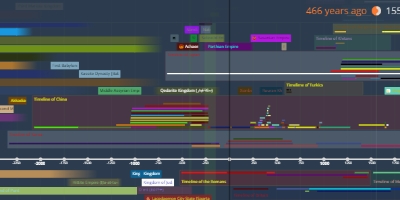Grand Duchy of Moscow (Великое княжество Московское) (jan 1, 1460 – jan 15, 1547)
Description:
The Grand Duchy of Moscow, Muscovite Russia, Muscovite Rus' or Grand Principality of Moscow (Russian: Великое Княжество Московское, Velikoye Knyazhestvo Moskovskoye, also known in English simply as Muscovy from the Latin Moscovia) was a Rus' principality of the Late Middle Ages centered on Moscow, and the predecessor state of the Tsardom of Russia in the early modern period. It was ruled by the Rurik dynasty, who had ruled Rus' since the foundation of Novgorod in 862. Ivan III the Great titled himself as Grand Prince of all Rus'.The state originated with the rule of Alexander Nevsky of the Rurik dynasty, when in 1263 his son Daniel I was appointed to rule the newly-created Grand Principality of Moscow, which was a vassal state to the Mongol Empire (under the "Tatar Yoke"), and which had eclipsed and eventually absorbed its parent duchy of Vladimir-Suzdal by the 1320s. It later annexed the Novgorod Republic in 1478 and conquered the Grand Duchy of Tver in 1485, and ultimately remained vassal state of the Golden Horde until 1480, though there were frequent uprisings and successful military campaigns against the Mongols, such as the war of Dmitri Donskoi in 1380.
Muscovites, Suzdalians and other inhabitants of the Rus' principality were able to maintain their Slavic, pagan, and Orthodox traditions for the most part under the Tatar Yoke. Ivan III further consolidated the state during his 43-year reign, campaigning against his major remaining rival power, the Grand Duchy of Lithuania, and by 1503 he had tripled the territory of his realm, adopting the title of tsar and claiming the title of "Ruler of all Rus'". By his marriage to Sophia Palaiologina, niece of Constantine XI Palaiologos, the last Byzantine emperor, he claimed Muscovy to be the successor state of the Roman Empire, the "Third Rome". The emigration of Byzantine people influenced and strengthened Moscow's identity as the heir of Orthodox traditions. Ivan's successor Vasili III also enjoyed military success, gaining Smolensk from Lithuania in 1512 and pushing Muscovy's borders to the Dniepr River. Vasili's son Ivan IV (later known as Ivan the Terrible) was an infant upon his father's death in 1533. He was crowned in 1547, assuming the title of tsar together with the proclamation of the Tsardom of Russia (Russian: Царство Русcкое, Tsarstvo Russkoye).
Added to timeline:
Date:
jan 1, 1460
jan 15, 1547
~ 87 years
